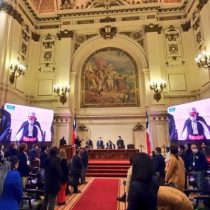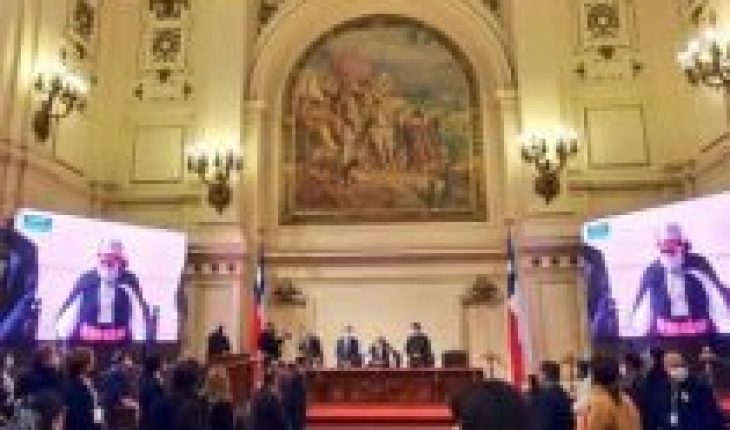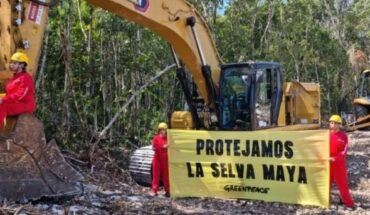
On Tuesday, a general vote was taken on the proposal by the Committee on Budgets to regulate the Convention’s expenditure. The hardest sectors of the right, those who promoted the Rejection in the plebiscite, which began this constituent process with 80% support, took the opportunity to discredit it.
It is very difficult to talk about money in the public sphere without arousing people’s suspicions. In recent years there have been too many corruption scandals involving state officials: military, carabineros, ministers, mayors. The experience of parliamentarians, who for years raised their salaries to make it much higher than prudent and their links with companies when it came to legislating, laid a cloak of doubt about anyone involved in politics.
The social outburst was also a reaction against that ruling class which, after 30 years in power, seemed more concerned with fixing each other’s whiskers than with the common good. Instead of seeing them as the majority’s servants, most began to wonder why them. The authority lost its respect, and power its legitimacy.
The constituent process was installed as the democratic response to this rupture, the invitation to generate a new institutional agreement, this time, without excluded, without cupular arrangements, without hegemonic culture, without the prior establishment of a measure of what is possible. It would be up to its members to look for it.
Nothing can poison this Convention more quickly than to be seen as a new group of privileged people or a replica of parliamentary vices. If its members, just on arrival, were dedicated to raising our salaries, it would be a scandal of proportions. But it’s a lie.
What we did was to order the money available for this process, so that all the conventional ones, whatever their physical and cultural place of origin, can exercise professionally and under equal conditions the task entrusted to them.
The per diem should mean a significant saving in the costs of accommodation, transfer and maintenance of our provincial colleagues. These moneys of all Chileans, we agreed that they should be administered with “responsibility, probity, transparency and proportionality”, in addition to other considerations such as territorial equity, the perspective of care, austerity, sufficiency, efficiency …
There is an External Allocations Committee composed of representatives of other branches of government to ensure this. If any of these principles were not adhered to, there would be good reason to cry out in heaven, but it is not true that this is the case. Quite the contrary. The government and all the constituents know this; also those who lie.
The committees are making good progress. By mid-September we should have the Rules of Procedure ready and start forming the new working groups, now to discuss the very content of the constitution. Hundreds of social organisations, study centres, universities and other citizens’ groups have participated in our deliberations. The vast majority of them are driven by the conviction that we are going through one of those moments that loar in the distance in the history of countries, when the community thinks again and democracy ceases to be a school subject, to become a living exercise.
In almost all commissions, group spirit prevails over confrontation. Human Rights was always meant to be different. If in the constitutional debate it deserves a central place, during this time of installation it occupies the corner of the account adjustments. There are the wounds, their pains, traumas and rages in plain sight.
Adolfo Millabur told me that he had to teach his son to respond to combos for offenses at school, to prevent them from being perpetuated. The machi Linconao was imprisoned without being guilty. The Mapuche people know of dissanishment and contempt. María Rivera passed through a torture center and Roberto Celedón shared the story of many other victims of Pinochetism. His calm soul, however, allowed him to tell me when he found us in a corridor that, despite everything, while the questions against him were burning, he recognized the kindness of former Admiral Arancibia, who was also the dictator’s aide-de-war.
But not everyone has celedon’s calm soul. Those who are there representing furies need to express them. It will be the task of those who want to take care of this constituent process and also of the left-wing political groups called to govern in the future, to help channel them from an institutional perspective. To advocate principles that do not allow their empire, so that no dictatorship is possible again. The Republic of Chile, the one that we aspire to build together, must learn that no one is left over, that even the most vile has something to teach them and that there is no lasting peace, where a group believes itself to possess the whole truth.





